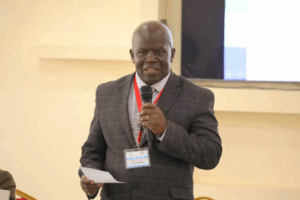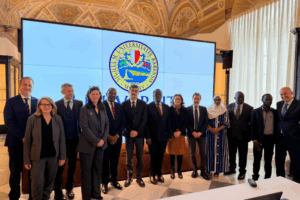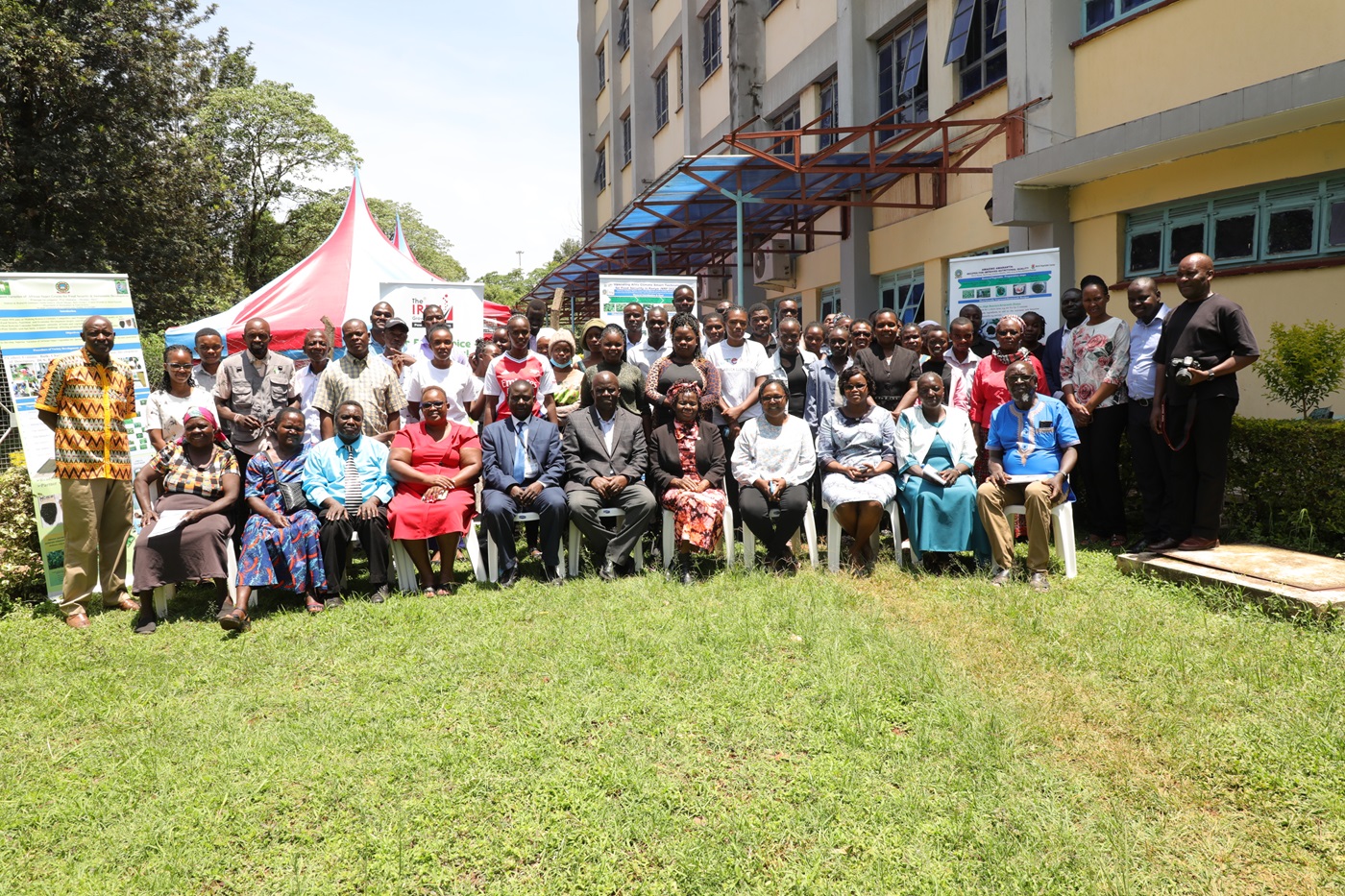
MMUST Hosts Sensitization Workshop on Standardized Recipes to Boost the Production and Consumption of African Indigenous Vegetables
Masinde Muliro University of Science and Technology (MMUST) on 9th April 2025 hosted the NRF-UPSCALE-AIVs Sensitization Workshop on the ‘Use of Standardized Recipes of African Indigenous Vegetables (AIVs). This project focuses on expanding the production and utilization of AIVs using climate-smart technologies in Kakamega and Kiambu counties.The workshop, held at SPD, brought together nutritionists, agricultural experts, local farmers, students, and stakeholders from various sectors to discuss strategies for increasing the production and popularity of these nutrient-rich crops. The project led by Prof. Mary Abukutsa (Principal Investigator) from Jomo Kenyatta University of Agriculture and Technology (JKUAT), and Dr. Anne Musotsi (Co-Principal Investigator) from MMUST while it is being implemented by JKUAT, MMUST and with IREN Kenya as a private sector partner.
The initiative aims to revive interest in traditional African vegetables such as amaranth, spider plant, cowpea leaves, and African nightshade, which have been sidelined in favor of exotic species despite their superior nutritional value and adaptability to local conditions. The researchers have developed standardized recipes for AIVs which are aimed at making the indigenous vegetables more appealing and accessible to every generation. These efforts have contributed to increased production, popularity, availability, and consumption of AIVs in schools, hotels, and supermarkets, leading to improved nutrition and health, and increased incomes for some farmers.
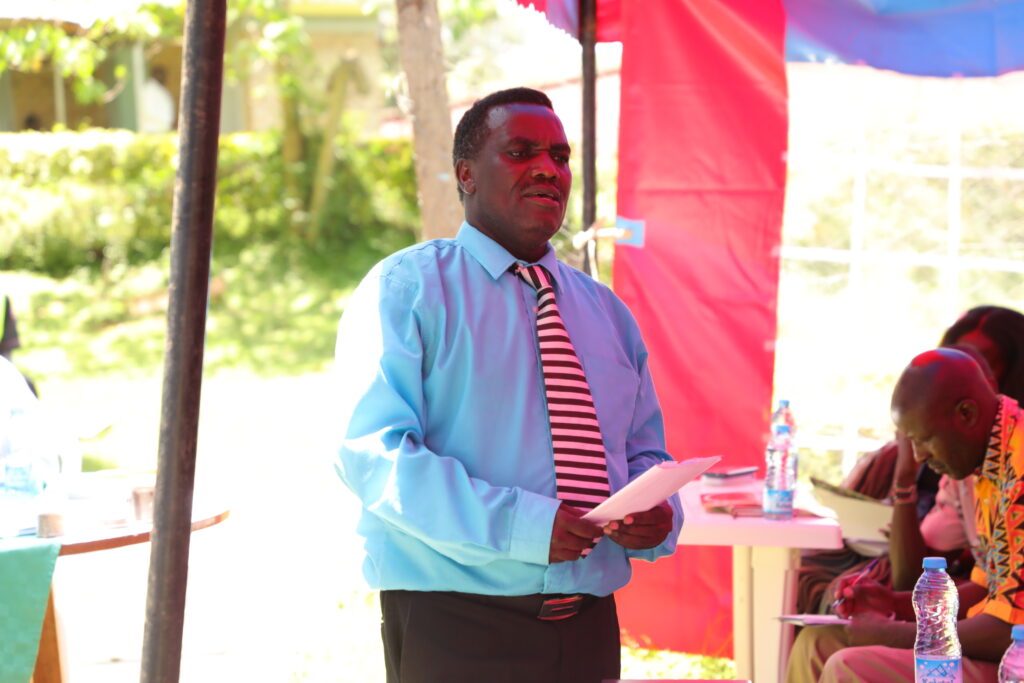
The Kakamega County Director of Agriculture Mr. Jonathan Makau speaking at the event.
The event was graced by the Kakamega County Director of Agriculture Mr. Jonathan Makau who presented a candid report on the state of AIV production and utilization in Kakamega.
Speaking during the workshop, the Ag. Deputy Vice Chancellor (Planning, Research and Innovation)- Prof. Peter Bukhala applauded the researchers saying that MMSUT is proud to be at the forefront of academic research that responds to local, national, and global development needs. He further revealed that currently, the University is implementing over 43 active research projects, with a cumulative funding portfolio amounting to over Kshs.150 million. These projects span across disciplines and reflect our vibrant research culture and the trust funders place in us as a university. “This initiative reflects our commitment not only to nutritional security and indigenous knowledge systems but also to impactful community-centered research and innovation,” said Prof. Bukhala.
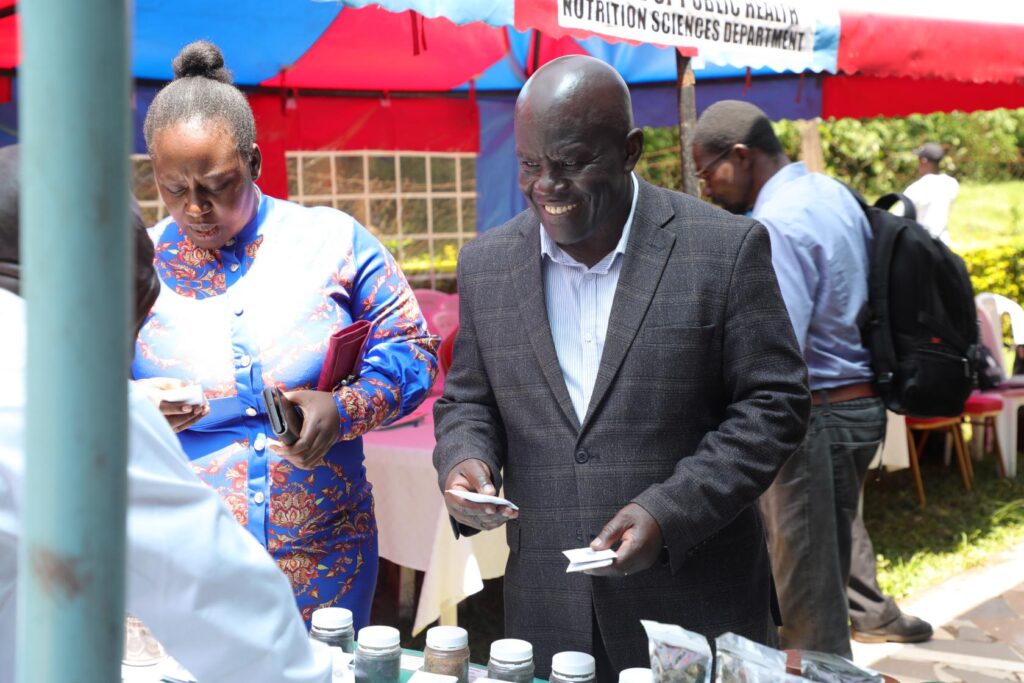
The Ag. Deputy Vice Chancellor (Planning, Research and Innovation)- Prof. Peter Bukhala being shown AIV seeds.
Similarly, the Dean of the School of Public Health, Biomedical Sciences and Technology Dr. Evans Raballah, emphasized the role of Universities in bridging traditional knowledge and modern science.
“This initiative reflects our commitment to community-based research and public health. By translating traditional food knowledge into structured, evidence-based practices, we empower communities with the tools to fight malnutrition and food insecurity,” stated Dr. Raballah.
Prof. Mary Abukutsa shared a compelling brief on the project’s overview saying that their goal is to empower communities with knowledge and tools to make the most of what they already grow. “Standardization of recipes is a critical step in making these vegetables more accessible and acceptable to the public, especially the younger generation who may not be familiar with traditional preparation methods,” said Prof. Abukutsa.
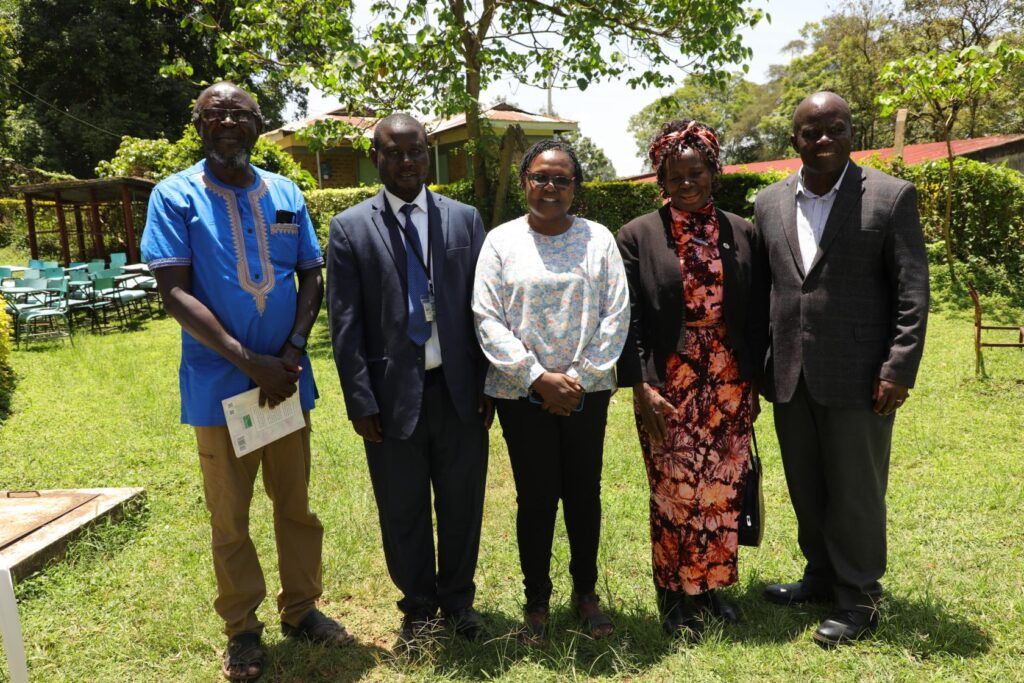
From right: Prof. Peter Bukhala, Prof. Mary Abukutsa (Principal Investigator) , Dr. Anne Musotsi (Co-Principal Investigator) and the Dean of the School of Public Health, Biomedical Sciences and Technology Dr. Evans Raballah,
Dr. Musotsi, the lead coordinator of the workshop and a lecturer in the Department of Nutrition and Dietetics, emphasized the importance of creating standardized recipes to encourage wider consumption. “Many people are unaware of how to prepare these vegetables in a palatable and nutritionally beneficial way. Standardized recipes offer a consistent, easy-to-follow guide that helps bridge that gap,” she said.
Representing Chairperson, Department of Nutritional Sciences, Dr. Lilian Soibe stated that promoting AIV’s through standardized, accessible recipes is a step toward achieving better health outcomes for our communities.
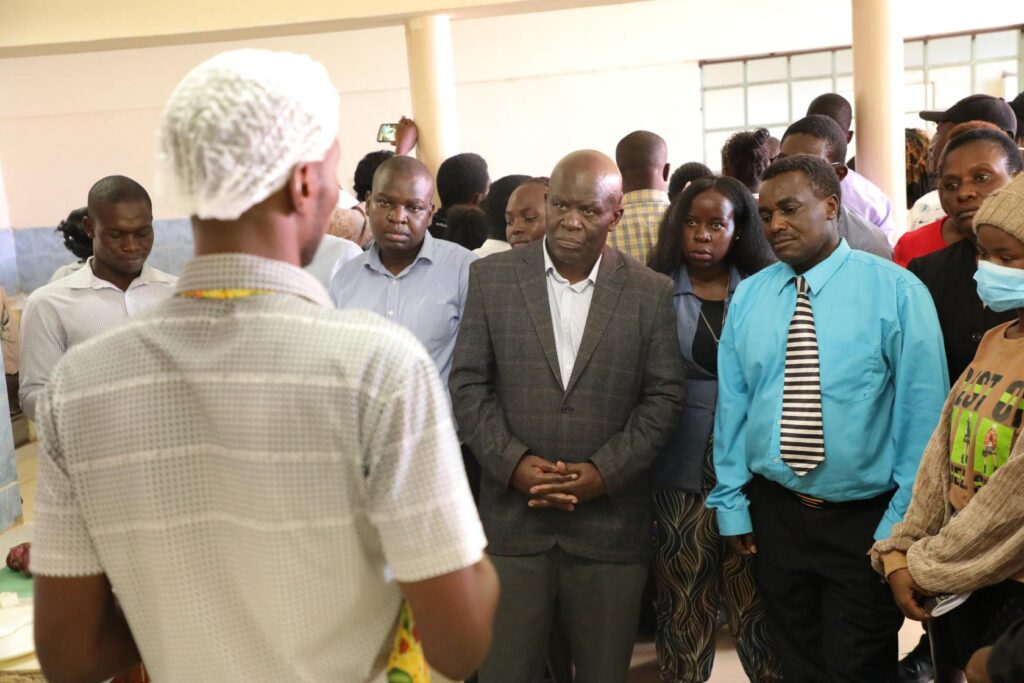
The participants keenly following a cooking demonstration.
The participants were taken through live demonstrations of the preparation of select recipes using dried and raw vegetables like African nightshade (managu), cowpea leaves (kunde) and mrenda. The procedures emphasized minimal nutrient loss during cooking. The workshop also featured a nutritional deep dive by SOFDI’s Agri-Nutritionist- Mr. Gerald Katis, who outlined the immense health benefits of AIVs and Ms. Catherine from IREN GrowthPad who provided detailed scalable strategies for preservation and market access.
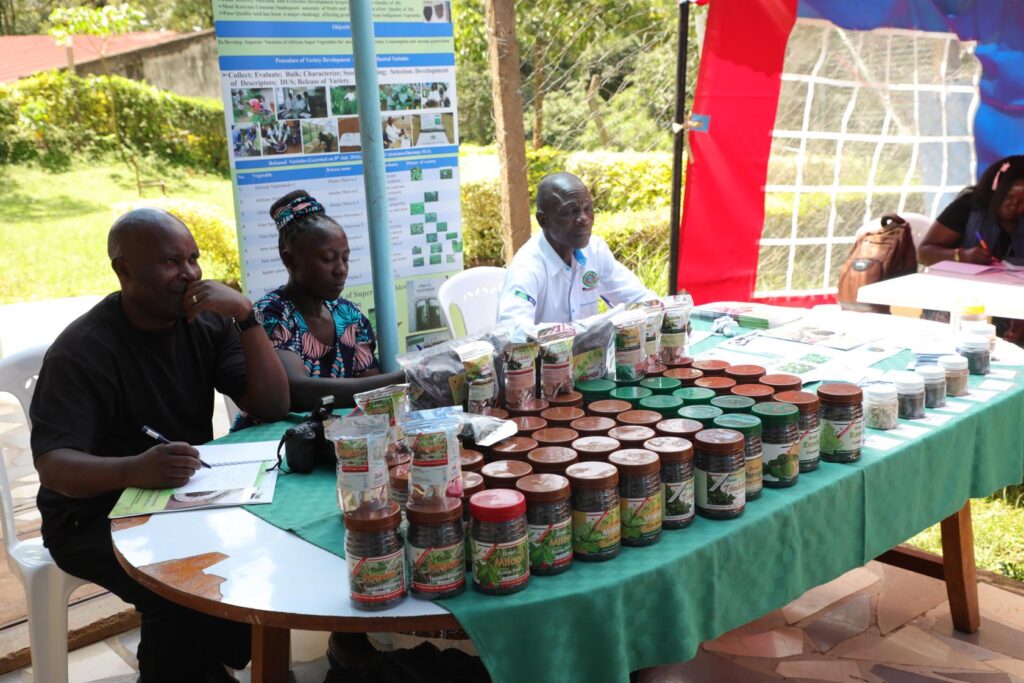
Research project partners at the event.
As we continue to face increasing challenges related to food security and climate change, this sensitization workshop stands as a promising model that a return to traditional, nutrient-rich crops like AIVs could offer sustainable solutions for future generations.
By Linet Owuor
Photos by Shiundu Masafu

